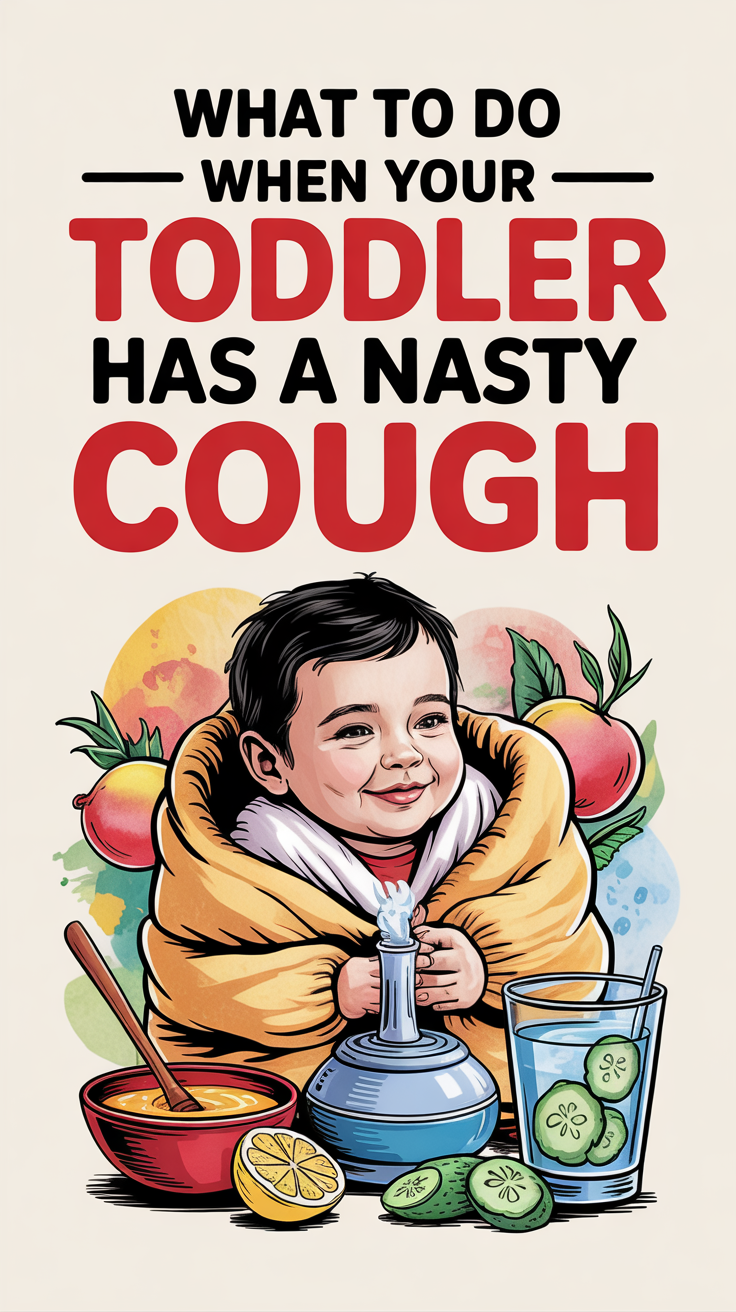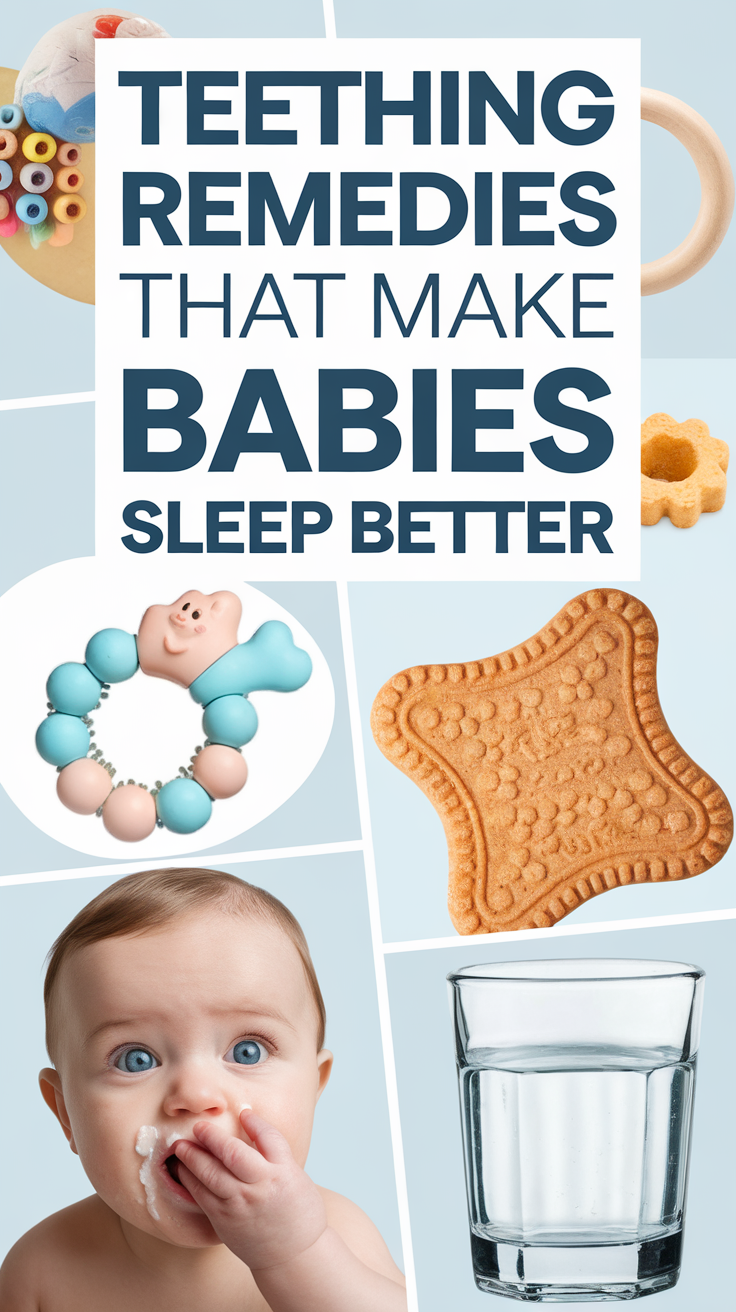What to Do When Your Toddler Has a Nasty Cough
When your toddler has a nasty cough, first identify the type—dry, wet, or barky. Ensure they’re drinking warm fluids to loosen mucus, and consider using a cool-mist humidifier for relief. Elevate their sleeping position and keep the room cool to ease breathing at night. Watch for signs of dehydration, like dry lips or decreased urination, and seek medical help if the cough lasts more than a few days. You’ll discover more effective strategies to help your little one feel better.
Understanding the Different Types of Coughs in Toddlers
What types of coughs should you be aware of when it comes to toddlers?
Dry and wet coughs are the main categories. Dry coughs often indicate upper airway irritation, while wet coughs stem from mucus in the lower airways. Understanding the sound of your child’s cough is crucial; for example, a barky cough may signal croup. Other coughs may indicate conditions like asthma or whooping cough. Recognizing these types helps you choose appropriate cough remedies for kids. It’s also important to note that younger children face higher risk of breathing issues from airway constriction or swelling due to smaller airways. Additionally, persistent coughs often stem from viral infections that may resolve in a few weeks. Always monitor accompanying symptoms, like fever or wheezing, and consult a healthcare professional if you’re concerned about your toddler’s cough.
At-Home Remedies to Soothe Your Child’s Cough
Caring for a toddler with a cough can be stressful, but at-home remedies can effectively soothe their discomfort.
Encourage warm fluids like caffeine-free tea or broth to loosen mucus and ease throat irritation. Fluid-Based Remedies can also include using honey for cough relief in children over age 1, but always consult your pediatrician first. For additional relief, consider serving warm drinks such as honey-lemon tea to help soothe their throat.
Offering chilled drinks or icy treats can also reduce inflammation.
A cool-mist humidifier can improve air quality, while daily saline mist helps maintain nasal moisture.
Provide comforting foods like warm soup or herbal tea.
Ensure your child gets adequate rest and keeps their head elevated during sleep to minimize coughing.
Nighttime Cough Management Strategies
How can you effectively manage your toddler’s cough at night? Implementing a few strategies can significantly improve their comfort.
- Use a cool-mist humidifier to add moisture, relieving throat irritation.
- Elevate their sleeping position to ease breathing and reduce postnasal drip.
- Maintain a cooler room temperature to decrease congestion.
Additionally, offering warm, caffeine-free liquids like broth can soothe their throat. Most coughs are viral and will resolve on their own with time, so it’s important to monitor their symptoms closely.
Encourage regular hydration throughout the day to thin mucus.
Creating a calming environment with darkness and minimal noise promotes better sleep.
These adjustments can help your toddler rest more soundly despite their cough.
Recognizing When to Seek Medical Help
When should you be concerned about your toddler’s cough?
If your child’s cough lasts longer than a few days, it’s wise to consult a pediatrician. Coughs that persist for over three weeks need evaluation for infections, while any cough lasting more than four weeks requires your doctor’s attention. Watch for serious signs like trouble breathing, blue discoloration around the mouth, or irregular breathing—these are emergencies. Additionally, high fevers without nasal symptoms warrant medical evaluation. It’s important to note that teething symptoms like increased fussiness may also lead to coughing in younger children. Worry about coughs that are combined with fast breathing or high fever, as they signify the need for urgent care. Always err on the side of caution, especially with younger children or those with chronic conditions like asthma, as prompt care can make all the difference.
Signs of Dehydration to Watch For
It’s crucial to keep an eye out for signs of dehydration in your toddler, especially if they’re dealing with a cough.
Here are some key indicators to watch for:
- Dry, sticky lips and mouth: These suggest your toddler isn’t getting enough fluids.
- Decreased urination: Fewer wet diapers or dark yellow urine can signal dehydration.
- Behavioral changes: Increased fussiness, lethargy, or unusually low energy levels need attention. In such cases, it’s important to consider if your toddler is experiencing insufficient water intake, which can worsen their overall condition. Additionally, persistent coughs may lead to increased fluid loss, so it’s essential to ensure your child stays hydrated with effective remedies like honey-based mixtures to soothe their throat.
If you notice any of these signs, act promptly to rehydrate your little one, as early intervention can make all the difference.








